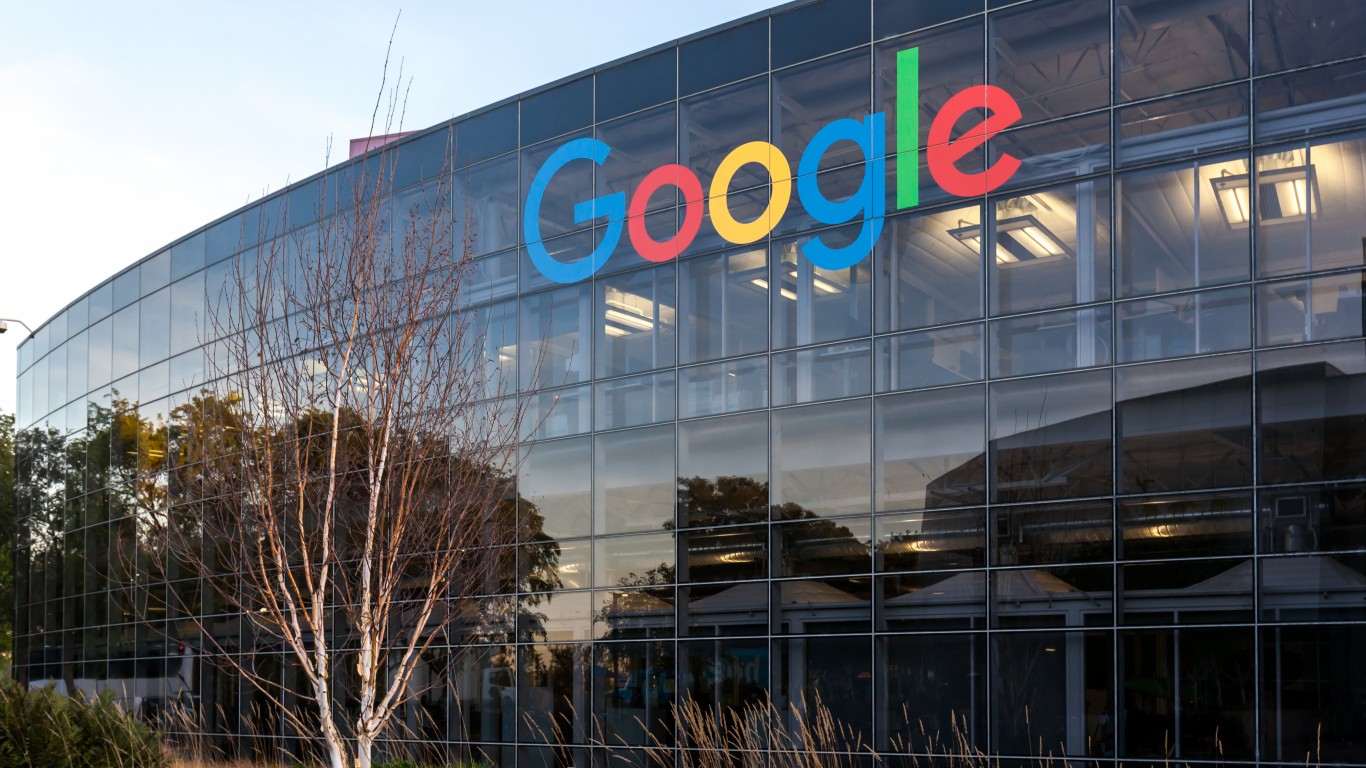
Google parent Alphabet (NASDAQ:GOOG)(NASDAQ:GOOGL) and Visa (NYSE:V) reported quarterly earnings and absolutely hit it out of the park. Their stocks, though, went in different directions. Alphabet jumped 1.7% to $171 per share while Visa fell almost 1% to below $282 per share, even though it also announced a massive dividend hike.
These were both solid earnings reports that benefited from across the board gains. Yet while shares of both companies are up in 2024, though by far different percentages, should investors jump onto one or the other, or both? Let’s dive in to find out if these are two companies that deserve a place in your portfolio.
24/7 Wall St. Insights:
- Alphabet (GOOG)(GOOGL) and Visa (V) are industry leaders and their just-released earnings reports show why they are at the top of their game.
- The blowout numbers for each indicate they are playing to their strengths and it is paying off, but investors need to decided if this is as good as it gets.
- If you’re looking for some stocks with huge potential, make sure to grab a free copy of our brand-new “The Next NVIDIA” report. It features a software stock we’re confident has 10X potential.
Alphabet (GOOG)(GOOGL)

It’s hard to add enough superlatives to Alphabet’s third-quarter earnings report. Revenue raced 16% higher in constant currency terms to $88.3 billion. While Google Services revenue jumped 13% to $76.5 billion, the real star was Google Cloud revenue racing a whopping 35% higher to $11.4 billion.
That represents significant acceleration from the 29% increase it saw in the second quarter. Cloud services are simply getting stronger. As a result, operating margins also broadly widened to 32% from 28% while earnings of $2.12 per share were up 37% year-over-year. That’s a massive beat to the $1.84 per share analysts were anticipating.
CEO Sundar Pinchai noted, “The momentum across the company is extraordinary.” Indeed.
Alphabet noted that YouTube’s total ads and subscription revenue exceeded $50 billion over the trailing 12 months, the first time that has happened. Yet as a big consumer of YouTube content, that is a big criticism I have of the company. Google is making YouTube nearly unwatchable because of the volume of ads it is running, though that could be part of the plan to push viewers to a paid subscription. It’s apparently working.
As noted, operating margins expanded in the quarter, even as Alphabet continues investing in artificial intelligence, underscoring the strength of Alphabet’s business. It noted AI is helping to bolster the search business, with revenue rising 12% in the period. Alphabet says its AI Overviews is leading to more user engagement and ad clicks. AI is also boosting cloud services as AI-related workloads continue to drive demand.
While Alphabet does face some antitrust concerns, the company remains a collection of superlative businesses all walking lockstep to drive revenue and profits higher. Even after the bump in GOOG stock, it is a worthy addition to your portfolio.
Visa (V)

Payments processor Visa said fiscal fourth-quarter revenue jumped nearly 12% in the period to $9.6 billion, beating Wall Street’s expectations by $130 million, as payments volume, cross-border volume, and processed transactions all surged from the year-ago quarter.
The gains generated adjusted earnings of $2.71 per share, a big $0.13 per share surprise to what analysts had forecast. On top of that, Visa announced it was hiking its dividend 13.5% to $0.59 per share while it also bought back $5.8 billion worth of stock.
The results indicate that despite fears of a consumer spending collapse, things are holding on quite well for Visa. That bodes well for future growth.
The company has a fairly simple business model: every time someone swipes their credit or debit card, Visa gets paid. It also faces fairly low risks because it doesn’t lend money, it’s not exposed to bad debt. Linking 100 million merchants and 15,000 banks worldwide, Visa possesses an extremely wide moat that produces consistently good growth and solid profitability.
Low risk is not no risk, though. The Justice Dept. just sued Visa for monopolizing the merchant payments network.
Still, Visa is a predictable dividend growth stock. Over the past decade, it has raised its payout at a better than 17% compound annual growth rate, growing the dividend from $0.35 per share in 2013 to $2.36 per share after the just-announced increase.
It can afford to pay such generous dividends because it produces significant free cash flow and has grown its cash profits at an even faster rate, or a CAGR of almost 23% annually. That has led to a low FCF payout ratio of just 19%, leaving substantial room for future similar increases. It all makes Visa a stand out stock to buy.
Thank you for reading! Have some feedback for us?
Contact the 24/7 Wall St. editorial team.



